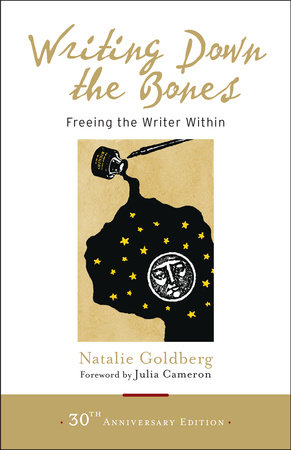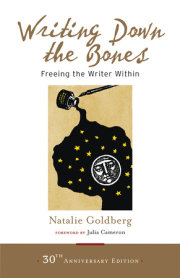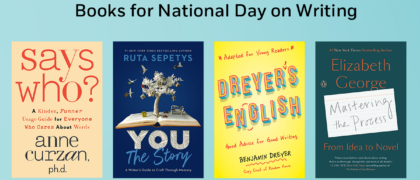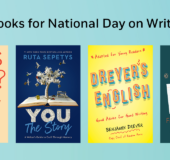Foreword
"Julia, come on in! It’s great!" Natalie Goldberg’s voice carried over the roar of the Rio Grande river. She had invited me to go swimming, assuring me that our jumping-off point would be safe and placid. It was nothing like safe and placid. The river’s current was strong, and it took a strong swimmer—like Natalie—to brave its depths.
"Come on in," she called again, "You’ll love it." And so, egged on by her enthusiasm, I stepped into the current. It was both strong and swift. Losing my footing, I found myself sputtering. Natalie laughed. "Don’t you love it?" she called. "Just relax." True to her word, Natalie herself rode the current. "You’re doing fine," she assured me, as I mentally wrote my obituary, "Writer takes the plunge and drowns."
Asked to write a foreword to this, the thirtieth anniversary edition of
Writing Down the Bones, I found myself remembering that afternoon on the Rio, and the way that Natalie’s bold enthusiasm lured me from the shore. “Why, it’s just like her teachings,” I realized. A million-plus readers have followed Natalie’s bold plunge into the world of words. "Just dive in," urges Natalie, teaching, "Begin where you are." Inspired by her conviction that all of us have lively stories to tell, Natalie’s students put pen to the page, following her enticing leads.
Writing Down the Bones is a book of short essays. True to her word, she begins at the beginning: "Beginner’s mind, pen and paper." From there, it’s time to push off from the shore. "Keep your hand moving," she commands. "Don’t cross out, don’t worry about spelling, punctuation and grammar; lose control, don’t think, don’t get logical, go for the jugular."
In other words, take the plunge.
"Do you want a tomato?" It’s another afternoon with Natalie, twenty years later. This time, we are standing at her kitchen counter, and she is urging me to just take one succulent bite. The tomato is home-grown, plucked by Natalie’s own hand. And though I’m not used to eating a tomato like a peach, Natalie models the daring it takes to consider the tomato an end in itself, and not a mere ingredient.
"Why, it’s just like her teaching," I caught myself thinking. It’s a matter of appetite. It’s a matter of satisfaction. Natalie’s writing is filled with savory details. The tomato she plucked from her garden can yield an entire essay.
"Include original detail," Natalie urges her students. Our lives are filled with details, like the ripe red tomato plucked from the vine. Natalie’s writing is filled with food, and her appetite for life gives us food for thought.
—Julia Cameron, author of
The Artist’s Way July 2015
Copyright © 2016 by Natalie Goldberg. All rights reserved. No part of this excerpt may be reproduced or reprinted without permission in writing from the publisher.






